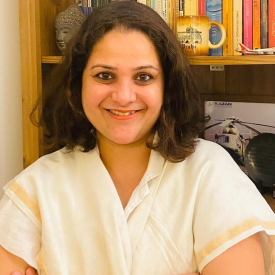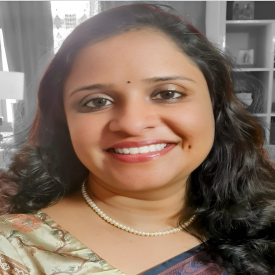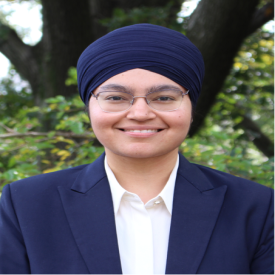Improving healthcare access to address the rise in non-communicable diseases among Indian women
In light of the changing healthcare burden for women, with a rise in mortality due to non-communicable diseases, Bhan and Shukla outline the incidence of diseases in Indian states over the last two de...
-
 Nandita Bhan
Nandita Bhan  Prajakta Pradip Shukla
Prajakta Pradip Shukla  22 December, 2023
22 December, 2023
- Perspectives
Second Ashok Kotwal Memorial Lecture: Inequality, Labour and Social Democracy
The Ashok Kotwal Memorial Lecture was instituted in 2022, in memory of our founding Editor-in-Chief, as an annual lecture on key issues of development. For its second edition, I4I hosted Professor Pra...
-
 Pranab Bardhan
Pranab Bardhan  I4I Team
I4I Team  20 December, 2023
20 December, 2023
- Videos
The ‘invisible’ disability of mental illness: Barriers to social security access
Sakshi Sharda writes about the how a lack of clarity on the assessment and diagnosis of mental health and poor implementation of social security schemes increases the vulnerability of those livings wi...
-
 Sakshi Sharda
Sakshi Sharda  10 October, 2023
10 October, 2023
- Perspectives
Nutritional penalty of motherhood: Can midday meals for children also improve their mothers’ health outcomes?
Midday meals provide a nutritional safety net for children and improve their learning outcomes and attendance. Nikita Sharma argues that spillover benefits might also exist for mothers of the children...
-
 Nikita Sharma
Nikita Sharma  26 May, 2023
26 May, 2023
- Perspectives
Access to clean drinking water and women’s safety in India
In this study, Sekhri and Hossain use district-level data to find empirical evidence that groundwater scarcity results in an increase in sexual violence against women. They argue that in households wi...
-
 Md. Amzad Hossain
Md. Amzad Hossain  Sheetal Sekhri
Sheetal Sekhri  18 May, 2023
18 May, 2023
- Articles
Foundational learning outcomes: More recovery than loss
Sharing data from the recently released ASER 2022, Wilima Wadhwa discusses the trends in primary school enrollment and learning during the pandemic. Using data collected from Karnataka, Chhattisgarh a...
-
 Wilima Wadhwa
Wilima Wadhwa  16 May, 2023
16 May, 2023
- Perspectives
Herself, and her child: Are they worse off due to Covid-19?
Lockdowns imposed to contain the spread of Covid-19 led to loss of employment and income. They also created greater food insecurity, with women and children being more vulnerable to such shocks. In t...
-
 Mousumi Dutta
Mousumi Dutta  Saswata Ghosh
Saswata Ghosh  Zakir Husain
Zakir Husain  11 May, 2023
11 May, 2023
- Articles
Old habits and new norms
As schools reopen and memories of the pandemic fade, Madhav Chavan takes stock of practices and ideas that have become the ‘new normal’. He highlights the increase in enrollment and absence of lea...
-
 Madhav Chavan
Madhav Chavan  01 May, 2023
01 May, 2023
- Perspectives
Sweet cash: Women’s demand for healthcare in developing countries
Agrawal et al. explore the role of gender-based preferences for demand of healthcare. Using CPHS data they find that the positive income shock – generated by a change in the mandated rates of contri...
-
 Shubhangi Agrawal
Shubhangi Agrawal  Somdeep Chatterjee
Somdeep Chatterjee  Chirantan Chatterjee
Chirantan Chatterjee  27 April, 2023
27 April, 2023
- Articles
Empowering patients with information to improve hospital accountability
Despite the expansion of free healthcare for the poor throughout India, many hospitals continue to charge patients out-of-pocket fees. In this study, Dupas and Jain investigate whether informing patie...
-
 Pascaline Dupas
Pascaline Dupas  Radhika Jain
Radhika Jain  24 April, 2023
24 April, 2023
- Articles
The unintended positive consequences of India’s safe motherhood programme
India’s flagship maternal health intervention, Janani Suraksha Yojana, provided conditional cash transfers to women opting for institutional deliveries. In this study, Chatterjee and Poddar document...
-
 Somdeep Chatterjee
Somdeep Chatterjee  Prashant Poddar
Prashant Poddar  11 April, 2023
11 April, 2023
- Articles
Low-tech and teacher support interventions during school closures
School closures during Covid-19 significantly impacted early childhood education, especially in households without sufficient parental engagement. Using data from households affiliated with Balwadis a...
-
 Pooja Pandey
Pooja Pandey  Avinash Reddy Pichhili
Avinash Reddy Pichhili  Aditya Narayan Rai
Aditya Narayan Rai  Karan Singhal
Karan Singhal  Nisha Pankaj Vernekar
Nisha Pankaj Vernekar  03 April, 2023
03 April, 2023
- Articles
A data story on female child marriage in India
In the eighth post of I4I’s month-long campaign to mark International Women’s Day 2023, Shubham Mudgil and Swathi Rao from The Quantum Hub use a novel dataset based on NFHS-5 to present data highl...
-
 Shubham Mudgil
Shubham Mudgil  Swathi Ramesh Rao
Swathi Ramesh Rao  20 March, 2023
20 March, 2023
- Perspectives
Time poverty for girls: Implications for educational attainment and workforce participation
In the fifth post of I4I’s month-long campaign to mark International Women’s Day 2023, Priyadarshini et al. leverage time use data from a study in Bihar, and find that girls take on a majority of ...
-
 Shubha Bhattacharya
Shubha Bhattacharya  Wendy Cheung
Wendy Cheung  Madhu Joshi
Madhu Joshi  Anamika Priyadarshini
Anamika Priyadarshini  14 March, 2023
14 March, 2023
- Articles
Understanding intergenerational educational mobility with conflicting evidence
There is a growing literature on intergenerational educational mobility that explores how parental education influences the educational attainment of children. This article compares three empirical mo...
-
 Md Nazmul Ahsan
Md Nazmul Ahsan  M. Shahe Emran
M. Shahe Emran  Hanchen Jiang
Hanchen Jiang  Orla Murphy
Orla Murphy  Forhad Shilpi
Forhad Shilpi  03 March, 2023
03 March, 2023
- Articles
Twitter feed
Tweets by Ideas4IndiaMost Popular Human Development Posts
Hindu-Muslim fertility differentials in India: District-level estimates from Census 2011
The 2011 Indian Census data show a higher growth rate of Muslim population compared to the Hindu population. This article provides an in-depth picture of Hindu-Muslim fertility differentials at the di...
 Saswata Ghosh
Saswata Ghosh  27 March, 2019
27 March, 2019
- Articles
Ten steps to transform the quality of education in India
In this article, Sridhar Rajagopalan, Managing Director of Educational Initiatives, suggests 10 initiatives that can help transform the quality of education in India.
 Sridhar Rajagopalan
Sridhar Rajagopalan  19 November, 2015
19 November, 2015
- Perspectives
Understanding India’s mental health crisis
Since the onset of the Covid-19 pandemic, several reports have indicated a worsening of mental health issues among individuals across age groups. In this post, Michele Mary Bernadine examines the stat...
 Michele Mary Bernadine
Michele Mary Bernadine  06 April, 2021
06 April, 2021
- Perspectives





 08 April, 2024
08 April, 2024






